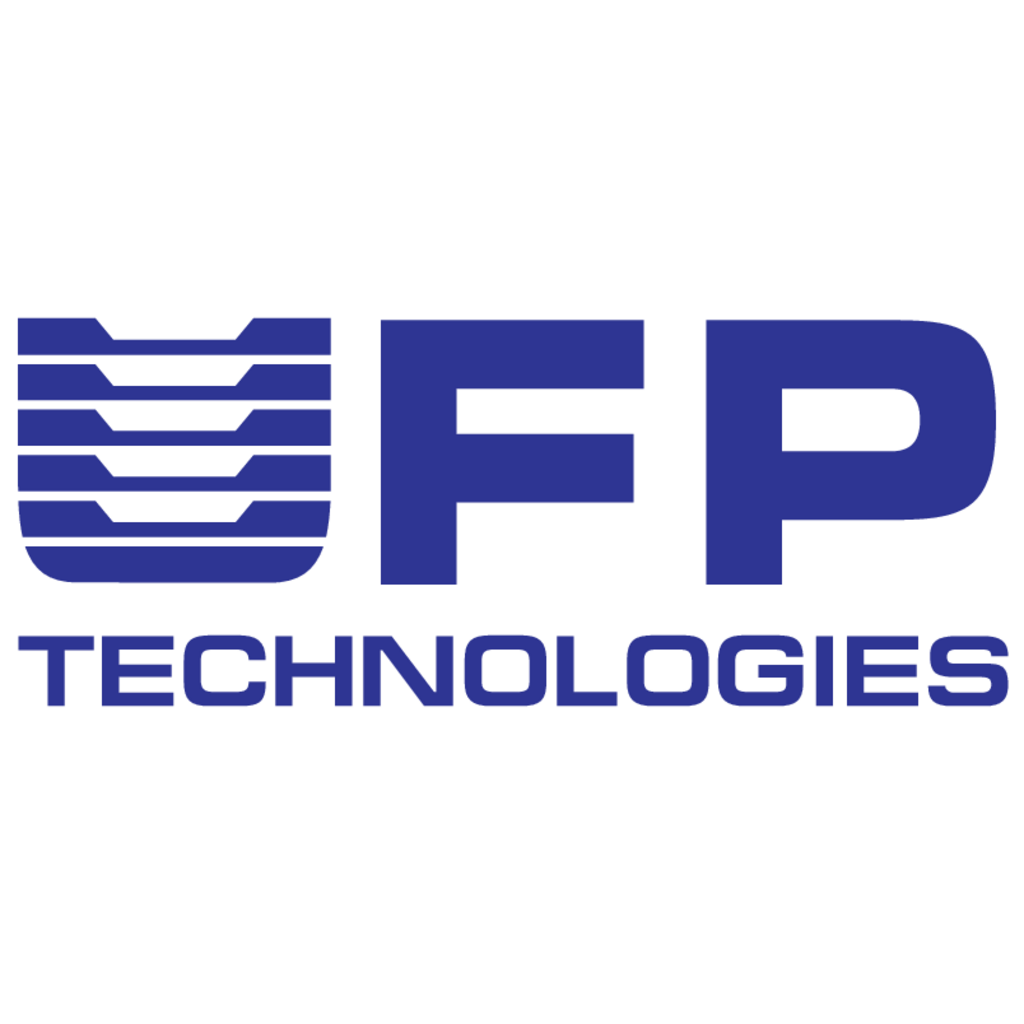Franchise Technology: Transforming the Industry
Franchise technology has revolutionized the franchise industry, ushering in a new era of efficiency, communication, and customer experience. From early models reliant on manual processes to today’s sophisticated systems, technology […]

Franchise technology has revolutionized the franchise industry, ushering in a new era of efficiency, communication, and customer experience. From early models reliant on manual processes to today’s sophisticated systems, technology has become an indispensable tool for both franchisors and franchisees.
This evolution has been driven by a desire to streamline operations, enhance communication, and improve customer satisfaction. As franchise models continue to evolve, technology will play an increasingly vital role in shaping the future of the industry.
The Evolution of Franchise Technology
The evolution of franchise technology has been a fascinating journey, marked by significant milestones and innovations that have fundamentally reshaped the franchise industry. From the early days of manual processes to the sophisticated digital solutions of today, franchise technology has played a crucial role in enhancing efficiency, improving communication, and elevating the customer experience.
Early Franchise Models and Technology Adoption
Early franchise models relied heavily on manual processes, with limited technological support. Communication between franchisors and franchisees was often slow and cumbersome, relying on phone calls, faxes, and mail. Data management was manual and prone to errors.
For instance, the early McDonald’s franchise model, established in the 1950s, relied on a system of paper-based manuals and in-person training. While this approach was effective for its time, it lacked the scalability and efficiency of modern technology.
Key Milestones and Innovations
The adoption of technology in the franchise industry has been a gradual process, marked by several key milestones and innovations:
- The Introduction of Computers (1970s-1980s): The introduction of computers brought about a significant shift in the franchise industry. Franchisors began using computers for tasks such as inventory management, financial reporting, and customer relationship management. This enabled them to streamline operations and make more informed decisions.
- The Rise of the Internet (1990s): The advent of the internet revolutionized communication and data sharing. Franchisors could now connect with franchisees and customers more efficiently through email, websites, and online forums. This increased transparency and facilitated collaboration.
- Mobile Technology and Cloud Computing (2000s-Present): The widespread adoption of mobile technology and cloud computing has further transformed the franchise industry. Mobile apps have enabled franchisees to access critical information, manage operations, and communicate with customers on the go. Cloud-based platforms have provided secure and scalable solutions for data storage, collaboration, and business intelligence.
Transformation of the Franchise Industry
Franchise technology has profoundly transformed the franchise industry in several key areas:
- Efficiency and Productivity: Technology has significantly enhanced efficiency and productivity within franchise systems. Automated tasks, streamlined workflows, and real-time data access have freed up franchisees to focus on core business operations and customer service.
- Improved Communication and Collaboration: Modern franchise technology platforms facilitate seamless communication and collaboration between franchisors and franchisees. Real-time messaging, video conferencing, and online document sharing have fostered a more connected and collaborative franchise environment.
- Enhanced Customer Experience: Technology has played a pivotal role in improving the customer experience. Online ordering, loyalty programs, and personalized recommendations have made it easier for customers to engage with franchise businesses and receive tailored services.
Key Components of Franchise Technology
Franchise technology is the backbone of successful franchise operations, enabling seamless communication, streamlined processes, and improved efficiency across the entire network. By leveraging technology, franchisors can empower franchisees to operate effectively, manage resources efficiently, and enhance the customer experience.
Point-of-Sale (POS) Systems
POS systems are essential for managing sales transactions, inventory, and customer data in franchise operations. They provide a centralized platform for processing payments, tracking sales performance, and generating reports.
- Real-time Sales Data: POS systems provide franchisees with instant access to sales data, enabling them to monitor performance, identify trends, and make informed decisions. This real-time visibility empowers franchisees to optimize pricing, adjust inventory levels, and adapt to changing customer preferences.
- Inventory Management: POS systems streamline inventory management by automatically tracking stock levels, placing orders, and managing stock rotation. This helps prevent stockouts, reduce waste, and ensure that franchises have the necessary products to meet customer demand.
- Customer Relationship Management (CRM): Integrated CRM features in POS systems allow franchisees to collect customer information, track purchase history, and personalize interactions. This data helps franchisees build stronger customer relationships, implement targeted marketing campaigns, and improve customer loyalty.
Inventory Management Software
Inventory management software plays a crucial role in optimizing stock levels, minimizing waste, and ensuring that franchises have the right products available at the right time.
- Automated Ordering: Inventory management software automates the ordering process, ensuring that franchises receive the necessary supplies on time and avoid stockouts. This reduces manual effort, minimizes delays, and ensures a consistent customer experience.
- Demand Forecasting: Sophisticated inventory management software can analyze historical sales data and market trends to forecast future demand. This enables franchisees to anticipate customer needs, adjust inventory levels accordingly, and minimize waste.
- Real-time Stock Visibility: Inventory management software provides real-time visibility into stock levels across the entire franchise network. This allows franchisors to identify potential shortages, re-allocate inventory, and ensure that franchises have the necessary supplies.
Customer Relationship Management (CRM) Tools
CRM tools are essential for building strong customer relationships, fostering loyalty, and driving repeat business.
- Customer Data Centralization: CRM tools centralize customer data, providing franchisees with a comprehensive view of customer interactions, preferences, and purchase history. This allows franchisees to personalize interactions, offer targeted promotions, and enhance the customer experience.
- Marketing Automation: CRM tools automate marketing tasks, such as sending personalized emails, SMS messages, and targeted promotions. This saves time, increases efficiency, and helps franchisees reach the right customers with the right message at the right time.
- Feedback Collection and Analysis: CRM tools enable franchisees to collect customer feedback, analyze sentiment, and identify areas for improvement. This feedback helps franchisees enhance their products, services, and customer experience.
Benefits of Franchise Technology for Franchisees
Franchise technology is a game-changer for franchisees, empowering them with tools and resources to streamline operations, enhance customer experiences, and ultimately drive profitability. By embracing these technological advancements, franchisees can gain a significant competitive edge and navigate the challenges of today’s dynamic business landscape.
Increased Efficiency and Productivity
Franchise technology streamlines operations by automating tasks, simplifying processes, and providing real-time insights into business performance. This enables franchisees to operate more efficiently, saving time and resources that can be redirected towards strategic initiatives.
- Inventory Management: Real-time inventory tracking systems ensure optimal stock levels, reducing waste and minimizing the risk of stockouts. This minimizes losses due to expired products or overstocking, while ensuring consistent product availability for customers.
- POS Systems: Point-of-sale systems expedite checkout processes, manage customer data, and provide valuable insights into sales trends and customer preferences. These insights can be used to tailor marketing strategies and improve customer service.
- Employee Scheduling and Management: Online scheduling tools simplify staff scheduling, reducing administrative burdens and optimizing workforce allocation. This ensures adequate staffing levels while minimizing labor costs.
Reduced Costs and Improved Profitability
By automating tasks, streamlining processes, and reducing errors, franchise technology directly contributes to cost savings and improved profitability.
- Operational Costs: Automating tasks such as payroll, inventory management, and customer service reduces the need for manual labor, leading to significant cost reductions.
- Marketing Costs: Targeted digital marketing campaigns, powered by customer data and analytics, ensure efficient allocation of marketing budgets and maximize return on investment (ROI).
- Training Costs: Online training platforms provide access to standardized training materials and resources, reducing the need for costly in-person training sessions.
Enhanced Customer Satisfaction and Loyalty
Franchise technology empowers franchisees to deliver exceptional customer experiences, fostering loyalty and driving repeat business.
- Customer Relationship Management (CRM): CRM systems track customer interactions, preferences, and purchase history, enabling personalized marketing campaigns and targeted promotions. This creates a more personalized and engaging customer experience.
- Online Ordering and Delivery: Mobile ordering platforms and delivery services provide customers with convenient and flexible options, enhancing customer satisfaction and driving repeat business. This is particularly relevant in today’s digital age, where convenience is a key driver of customer loyalty.
- Customer Feedback Systems: Online feedback platforms allow customers to share their experiences and provide valuable insights for continuous improvement. This proactive approach demonstrates a commitment to customer satisfaction and fosters a culture of improvement.
Improved Decision-Making and Business Performance
Franchise technology provides franchisees with access to real-time data and analytics, enabling data-driven decision-making and informed business strategies.
- Performance Tracking: Key performance indicators (KPIs) are tracked and analyzed, providing insights into business performance and identifying areas for improvement. This allows franchisees to monitor their progress and make informed decisions to optimize operations.
- Data-Driven Insights: Data analytics tools provide valuable insights into customer behavior, market trends, and competitive landscape. This enables franchisees to identify opportunities and make informed decisions to capitalize on market trends and stay ahead of the competition.
- Predictive Analytics: Advanced analytics can predict future trends and forecast demand, allowing franchisees to anticipate market changes and adjust their strategies accordingly. This proactive approach helps franchisees stay ahead of the curve and capitalize on emerging opportunities.
Benefits of Franchise Technology for Franchisors

Franchise technology is a game-changer for franchisors, providing a powerful toolkit to streamline operations, enhance communication, and foster growth. By embracing technology, franchisors can unlock a range of benefits that lead to greater efficiency, brand consistency, and franchisee satisfaction.
Enhanced Communication and Collaboration
Effective communication is the lifeblood of any successful franchise system. Franchise technology empowers franchisors to communicate with their franchisees seamlessly, fostering a strong and collaborative relationship.
- Real-time Communication: Platforms like messaging apps and online portals allow franchisors to send out instant updates, announcements, and important information to all franchisees simultaneously. This ensures everyone is on the same page and minimizes delays in communication.
- Centralized Communication Hub: Franchise technology provides a single platform for all franchisee communication. This eliminates the need for multiple channels and ensures that important messages are not missed.
- Improved Feedback Mechanisms: Online surveys, feedback forms, and interactive dashboards allow franchisors to gather valuable insights from franchisees. This feedback can be used to identify areas for improvement and enhance the overall franchise experience.
Streamlined Operations and Increased Efficiency
Franchise technology can automate many administrative tasks, freeing up franchisor time and resources to focus on strategic initiatives.
- Automated Reporting and Analytics: Dashboards and reporting tools provide franchisors with real-time data on key performance indicators (KPIs), such as sales, inventory levels, and customer satisfaction. This data allows franchisors to identify trends, make informed decisions, and optimize operations.
- Simplified Training and Onboarding: Online training modules and digital learning platforms make it easier for franchisors to provide comprehensive training to new and existing franchisees. This ensures consistent knowledge and skills across the franchise system.
- Centralized Document Management: Franchise technology allows franchisors to store all franchise-related documents, such as contracts, manuals, and marketing materials, in a secure and easily accessible online repository. This streamlines operations and eliminates the need for paper-based systems.
Improved Brand Consistency and Compliance
Maintaining brand consistency is crucial for the success of any franchise system. Franchise technology provides tools that help franchisors ensure that all franchisees adhere to brand standards and guidelines.
- Digital Brand Guidelines: Online platforms can house brand guidelines, marketing materials, and other resources that franchisees can access anytime. This ensures that all franchise locations maintain consistent branding and messaging.
- Automated Compliance Monitoring: Franchise technology can automate compliance checks, ensuring that franchisees are adhering to operational procedures, safety regulations, and other requirements. This reduces the risk of legal issues and maintains brand integrity.
- Centralized Marketing Campaigns: Franchise technology enables franchisors to create and manage centralized marketing campaigns that can be rolled out across all franchise locations. This ensures consistent messaging and brand awareness across the system.
Emerging Trends in Franchise Technology
The franchise industry is constantly evolving, driven by technological advancements that are reshaping the way businesses operate and interact with customers. Emerging trends in franchise technology are playing a pivotal role in transforming the franchise landscape, offering new opportunities for both franchisors and franchisees.
Cloud Computing
Cloud computing has emerged as a game-changer in the franchise industry, offering a range of benefits for both franchisors and franchisees.
- Scalability and Flexibility: Cloud-based solutions provide scalable infrastructure that can easily adapt to changing business needs. This allows franchisees to scale their operations up or down as required, without the need for significant upfront investments in hardware and software.
- Cost Savings: Cloud computing eliminates the need for expensive on-premises infrastructure, leading to significant cost savings. Franchisors can leverage cloud-based solutions to manage their operations more efficiently, while franchisees can benefit from lower IT costs.
- Enhanced Collaboration: Cloud platforms facilitate seamless collaboration between franchisors and franchisees. This enables real-time data sharing, streamlined communication, and improved operational efficiency across the entire franchise network.
- Data Security: Cloud providers invest heavily in data security measures, ensuring that franchise data is protected from unauthorized access and cyber threats. This is particularly important for franchises that handle sensitive customer information.
Artificial Intelligence (AI)
AI is rapidly transforming the franchise industry, offering new ways to automate tasks, personalize customer experiences, and gain valuable insights from data.
- Automated Customer Service: AI-powered chatbots and virtual assistants can handle routine customer inquiries, freeing up staff to focus on more complex tasks. This improves customer satisfaction and reduces operational costs.
- Personalized Marketing: AI algorithms can analyze customer data to identify preferences and create personalized marketing campaigns. This increases the effectiveness of marketing efforts and improves customer engagement.
- Predictive Analytics: AI can analyze historical data to predict future trends and identify potential opportunities or challenges. This helps franchisors make informed decisions about resource allocation, marketing strategies, and operational improvements.
- Fraud Detection: AI can be used to detect fraudulent transactions and prevent financial losses. This is particularly important for franchises that handle online payments or sensitive customer data.
Mobile Solutions
Mobile technology is transforming the way franchises operate and interact with customers.
- Mobile Point of Sale (POS): Mobile POS systems allow franchisees to process transactions, manage inventory, and track sales data from anywhere with an internet connection. This increases flexibility and improves operational efficiency.
- Mobile Ordering and Delivery: Mobile apps enable customers to order food, products, or services directly from their smartphones. This provides a convenient and seamless customer experience and increases order volume.
- Mobile Marketing: Mobile marketing campaigns can target specific customer segments based on location, demographics, and other factors. This increases the effectiveness of marketing efforts and improves customer engagement.
- Mobile Training and Support: Franchisors can use mobile apps to provide training materials, support resources, and communication channels to franchisees. This enhances knowledge sharing and improves franchisee performance.
Comparison of Traditional and Emerging Franchise Technology
| Feature | Traditional Franchise Technology | Emerging Franchise Technology | Impact on Industry |
|---|---|---|---|
| Infrastructure | On-premises hardware and software | Cloud-based solutions | Increased scalability, flexibility, and cost savings |
| Data Management | Manual data entry and analysis | Automated data collection and analysis using AI | Improved data insights, personalized customer experiences, and optimized operations |
| Communication | Email, phone calls, and physical meetings | Real-time communication platforms, mobile apps, and video conferencing | Enhanced collaboration, streamlined communication, and improved franchisee support |
| Customer Engagement | Traditional marketing channels, limited customer interaction | Mobile ordering, personalized marketing, and AI-powered customer service | Increased customer satisfaction, improved brand loyalty, and higher revenue growth |
Case Studies of Successful Franchise Technology Implementation
Franchise technology has revolutionized the way franchise businesses operate, allowing them to streamline processes, improve efficiency, and enhance customer experiences. Several successful franchises have implemented technology solutions that have significantly impacted their growth and profitability. These case studies provide valuable insights into the transformative power of technology in the franchise industry.
Examples of Successful Franchise Businesses Leveraging Technology
Several successful franchises have embraced technology to enhance their operations and achieve significant growth. These case studies highlight the diverse ways technology can be applied to optimize various aspects of franchise businesses.
- Domino’s Pizza: Domino’s Pizza is a prime example of a franchise leveraging technology for success. The company has invested heavily in online ordering platforms, mobile apps, and real-time order tracking systems. This has resulted in increased convenience for customers and a more efficient ordering process for franchisees. Domino’s has also implemented a data-driven approach to marketing, using customer data to personalize promotions and target specific demographics. These initiatives have contributed to Domino’s sustained growth and market dominance.
- McDonald’s: McDonald’s, a global fast-food giant, has consistently embraced technological advancements to improve its operations and customer experience. The company has introduced self-order kiosks, mobile ordering and payment options, and digital menu boards. These innovations have streamlined the ordering process, reduced wait times, and provided customers with greater control over their orders. McDonald’s has also implemented data analytics tools to track customer preferences, optimize menu offerings, and personalize promotions.
- Starbucks: Starbucks has successfully leveraged technology to enhance its customer experience and drive sales. The company’s mobile app allows customers to order ahead, pay for their purchases, and earn rewards. Starbucks has also implemented a digital loyalty program that incentivizes repeat business and collects valuable customer data. The company’s focus on technology has enabled it to create a seamless and personalized experience for its customers, contributing to its continued growth and success.
Technologies Implemented and Their Impact
The technologies implemented in these case studies have had a profound impact on key business metrics, including sales, efficiency, and customer satisfaction.
| Franchise | Technology Implemented | Benefits | Impact on Business Metrics |
|---|---|---|---|
| Domino’s Pizza | Online ordering platform, mobile app, real-time order tracking system | Increased convenience for customers, efficient ordering process, data-driven marketing | Increased sales, improved customer satisfaction, enhanced operational efficiency |
| McDonald’s | Self-order kiosks, mobile ordering and payment options, digital menu boards, data analytics tools | Streamlined ordering process, reduced wait times, personalized promotions, optimized menu offerings | Increased sales, improved customer satisfaction, enhanced operational efficiency, improved menu planning |
| Starbucks | Mobile app, digital loyalty program, data analytics tools | Seamless and personalized customer experience, increased customer loyalty, data-driven decision-making | Increased sales, improved customer satisfaction, enhanced brand loyalty, optimized marketing campaigns |
Concluding Remarks
The impact of franchise technology is undeniable, offering numerous benefits for both franchisors and franchisees. By embracing these advancements, franchise businesses can achieve greater efficiency, improve communication, and ultimately, deliver a superior customer experience. As technology continues to evolve, the franchise industry is poised for even greater innovation and success.
Franchise technology often involves streamlining operations for increased efficiency. One area where this is particularly important is inventory management, and that includes linen tracking technology. By implementing such technology, franchises can better manage their linen supply, reduce waste, and improve customer satisfaction.
This focus on operational efficiency is a key aspect of successful franchising.










